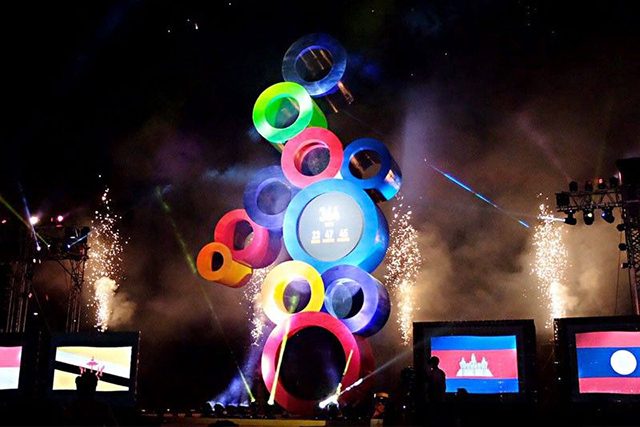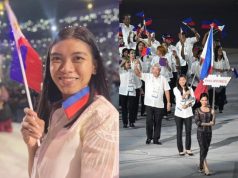
The overall functions of the Philippine SEA Games Organizing Committee (PHISGOC) in the regional meet were being questioned given that it is a private entity composed of government officials who also worked as the event’s organizers from the start.
From logistics issues to delayed completion of venues, delegates and media practitioners faced many inconveniences a week before the official start of the biennial meet.
Improvements on accommodations, services and other amenities had been made, fortunately, as the launch of the international sports event drew near.
While apologies had been issued, PHISGOC Chair Alan Peter Cayetano also blamed these on the delay of the budget for the event, citing Sen. Franklin Drilon whom he alleged was also partly at fault.
In turn, some people took to social media to question how the PHISGOC differed from the Philippine Sports Commission — a government agency — if both bodies have the same members.
Twitter user @darnitJC pointed this out when he retweeted a report on the previous Senate hearing about the matter.
“Did you know that PHISGOC is a private entity created by Cayetano (who heads it btw) to manage the SEA Games,” part of his tweet read.
Did you know that PHISGOC is a PRIVATE ENTITY created by Cayetano (who heads it btw) to manage the SEAGames.
Gov't gave it P700M, including the P50M cauldron.
MAY PSC NAMAN! GARAPALAN LANG??
IT'S A NAPOLES STYLE NGO!#SEAGamesfail2019https://t.co/30U6y294xn— No Chill Millennial ✨🙃✊ (@darnitJC) November 27, 2019
Aside from a P6-billion budget, the PHISGOC also received P1.5 billion in “financial assistance” without undergoing public bidding because it was considered a private entity.
Such was brought up again by veteran journalist Inday Espina Varona on Twitter.
Ehem. Interesting stuff here: Cayetano said the P1.5 billion would be used for broadcast expenses, talent fee, ocular site visits, special meetings, workshop and training, gametime medical requirements, fixtures, and other operating expenses. https://t.co/5mxdS9f8jL
— inday espina varona (@indayevarona) November 24, 2019
Drilon previously led the investigation into the specific involvement of PHISGOC to the sports competition.
When Sen. Bong Go responded that the body will serve as mediators, the senate leader further drilled that the SEA games organizers and members of the PHISGOC are the same.
“The members of the foundation that you enumerated are also government officials, so why did these government officials could have not performed the task as government officials and not as members of the organization?” he said.
Prior to this, Drilon also raised issues on the pricey P50-million cauldron to be used for the torch lighting ceremony in Tarlac.
A committee turned into foundation
The Philippine SEA Games Organizing Committee was created by virtue of Memorandum Circular No. 56, which was enacted last January.
Part of it states that the PHISGOC and “all the concerned national sports associations shall coordinate and support each other for the effective and successful participation of the Philippine delegates in the 30th SEA Games and all preparatory and relevant competitions.”
Philippine Olympic Committee president Joey Romasanta previously said that the PHISGOC was only expected to function as a committee under the Olympic council rule.
However, in July, Ramon Suzara, PHISGOC’s chief executive, said that the group was incorporated and formed into a private foundation in compliance with the rules of the International Olympic Committee.
“In fact, it was even then POC president Peping Cojuangco and vice president Joey Romasanta who advised PHISGOC to have this entity incorporated,” Suzara said then.
The P6-billion budget was then allotted for the SEA Games from the 2019 budget.
An additional P1.5 billion was later infused there as transfer funds that were exempted from public bidding rules now that PHISGOC is a non-profit private organization.
In a Senate hearing, Cayetano then claimed that PSC and POC could not hire lawyers to bid out the contracts by themselves, therefore, resulting into his foundation to accept the money.









